In a gallery corner, she stands frozen mid-pose, phone in hand, eternally chasing that perfect shot. No filter, no glow-up—just raw, scarred marble staring back at you. Meet Algorithmic Beauty, a 6’8” Statuario marble sculpture by Greg Lansky, completed in 2022.
It’s not your typical Instagram bait. It’s a gut-punch wrapped in elegance, forcing us to confront the absurdity of our likes-for-looks economy.
Cultural Canvas is a reader-supported publication. Every like, comment, share, and donation helps us grow—your support truly matters!
The artist nails it:
“I created this work reflecting on the relationship between pain and feeling loved in a world driven by AI algorithms. There is no mirror for her selfie because humanity is the mirror. We are all the mirror.”
This line lingers. It’s prophetic. In a world where we outsource self-worth to metrics, the absence of a mirror becomes the loudest statement.
She’s not looking at herself… she’s looking at us. And we, in turn, are forced to look back.
Picture this: a modern Venus, arm cocked like she’s about to hit “post,” but instead of a flawless reflection, her face bears the etched scars of endless tweaks—Botox lines, filler ridges, the works.
No airbrushing here. These are
“marks from plastic surgeries... displayed with grace and dignity like the battle scars of an endless war no one can win.”
The war, of course, is against imperfection. But the battlefield is our own flesh.
It’s a sly nod to the Venus de Milo, that armless icon from 2,000 years ago symbolizing untouchable perfection. But the artist flips the script:
“Today, it’s AI’s algorithms that have God-like power over humanity. They influence beauty standards with the irresistible promise that those who follow will be rewarded by digital engagement disguised as love.”
We’re not sculpting goddesses anymore, we’re feeding the machine!
Scroll TikTok for five minutes and you’ll see it: the algorithm dangles validation like candy—10K likes if you just sharpen your jawline a tad more. Cue the scalpel. Cue the ring light. Cue the existential dread. As the artist puts it,
“In the pursuit of that promise people will go through immense physical pain. This made me feel that maybe plastic surgery could be seen as an act of love and commitment to participate in a world of lies we are all part of.”
That line stings. Because it’s not just critique—it’s empathy. It doesn’t mock the participants. It mourns the system.
And here’s the kicker that had me chuckling darkly: the Venus de Milo, for all her fame, is a curated illusion… one of the many. When she was discovered in 1820 on the Greek island of Milos, her arms were already missing. But the Louvre, eager to elevate her status, leaned into the mystery. They promoted her as a classical Greek masterpiece—despite evidence she was sculpted in the later Hellenistic period, a time considered less “pure” by 19th-century standards.
The myth of her antiquity was polished, marketed, and sold to the world.
Maybe that’s the better metaphor for our social media era: not a deliberate fraud, but a fiction we all agreed to believe. A goddess made iconic not by truth, but by narrative.
And we’re still lining up for selfies with fictions—whether it’s a broken-armed relic or a filtered influencer with 17 surgeries under her belt.
Let’s call it what it is: our society’s shallowness it’s engineered. Algorithms don’t care about your soul, and they monetize your insecurity. We carve ourselves into oblivion for a dopamine hit that evaporates faster than a Story.
And the tragedy is not just that we fall for it—it’s that we call it empowerment. We rebrand conformity as self-expression, pain as glow-up, and loneliness as virality.
Algorithmic Beauty mirrors us, scars and all. In a world where “authenticity” means unblurring your dysmorphia just enough to go viral, this sculpture says: Enough. Put down the phone. Look at each other. That’s the real like you crave.
And maybe that’s the most radical thing about her. She asks for reflection. She stands still while the world scrolls past, a monument to the quiet rebellion of being real.
No hashtags. No engagement bait questions. Just presence.
Thank you for being part of Cultural Canvas! If you love what we do, consider supporting us to keep it free for everyone. Stay inspired and see you in the next post!


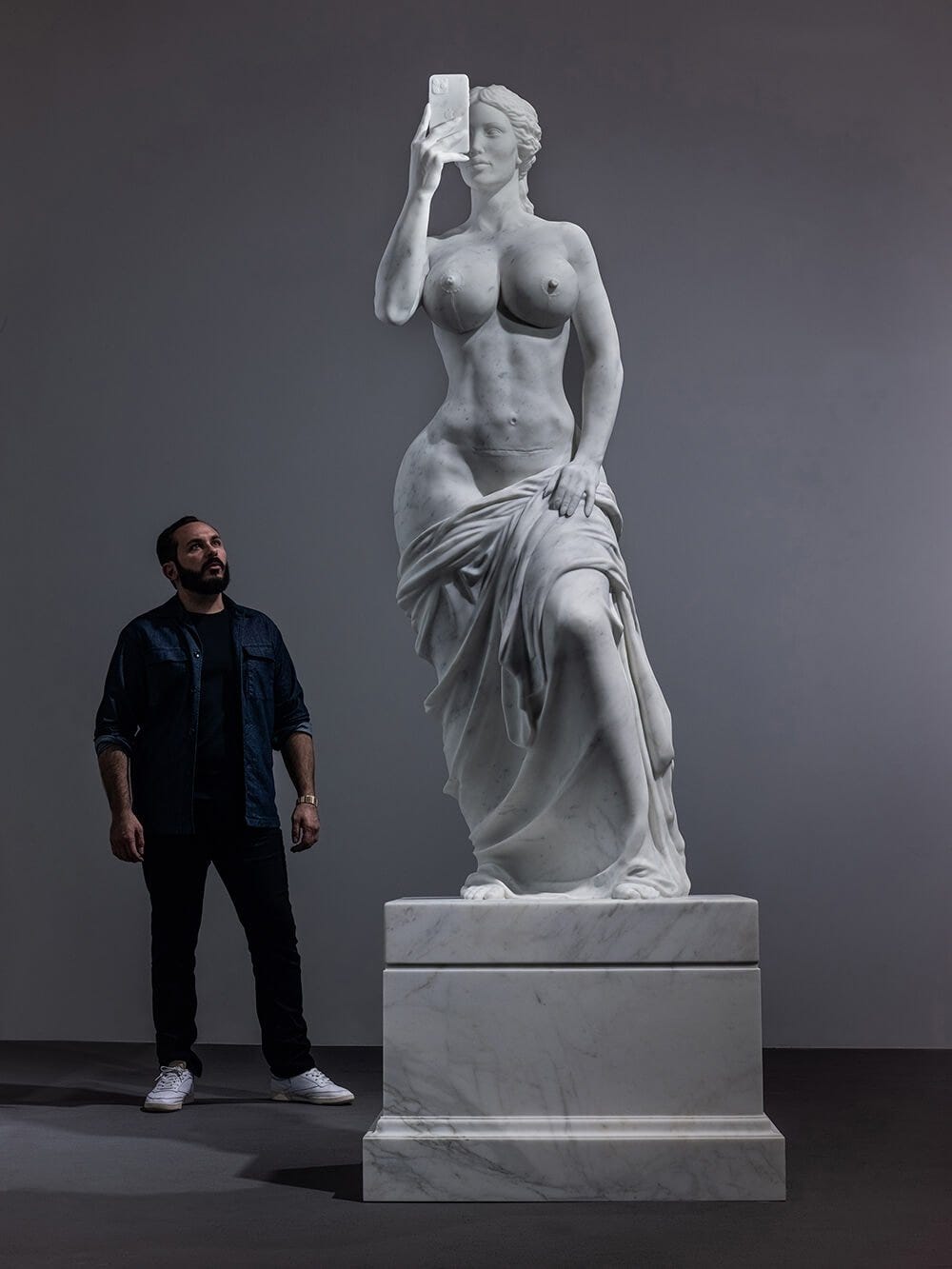
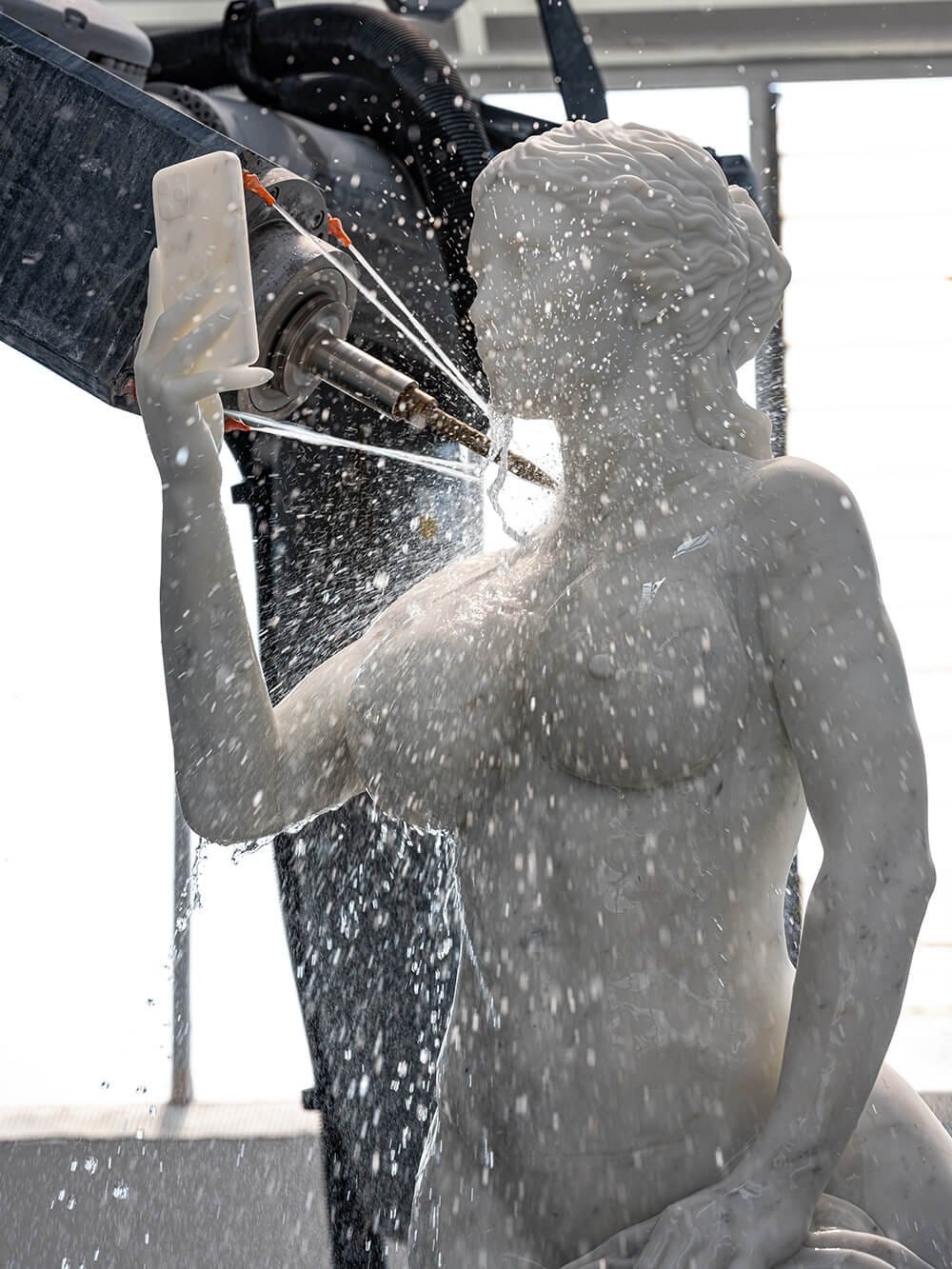
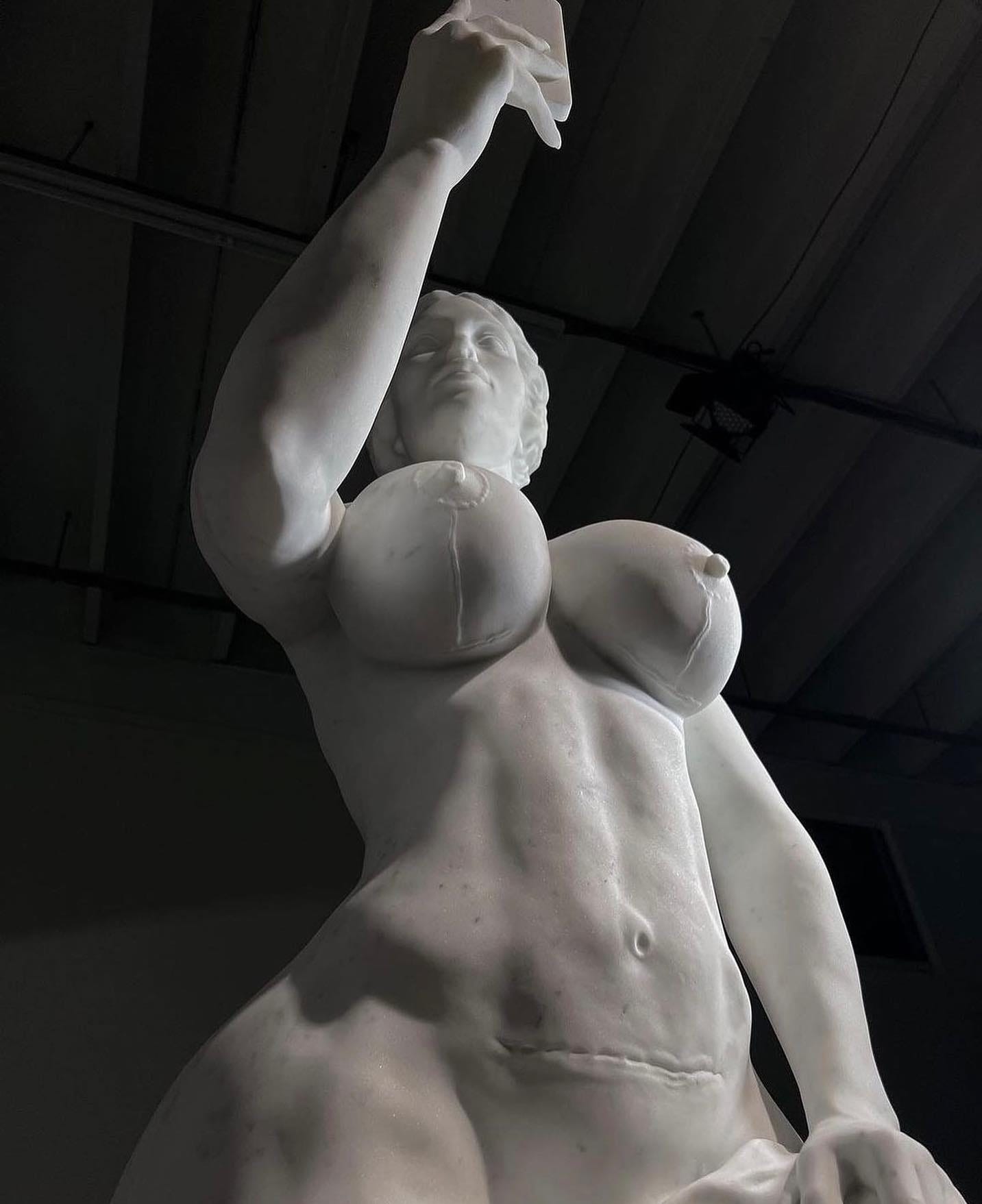
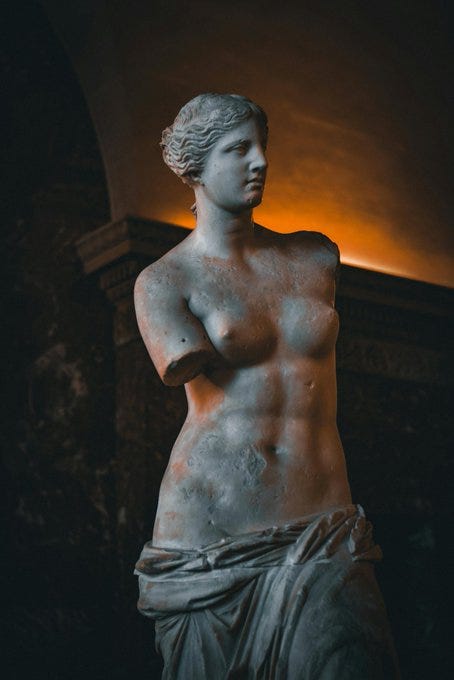
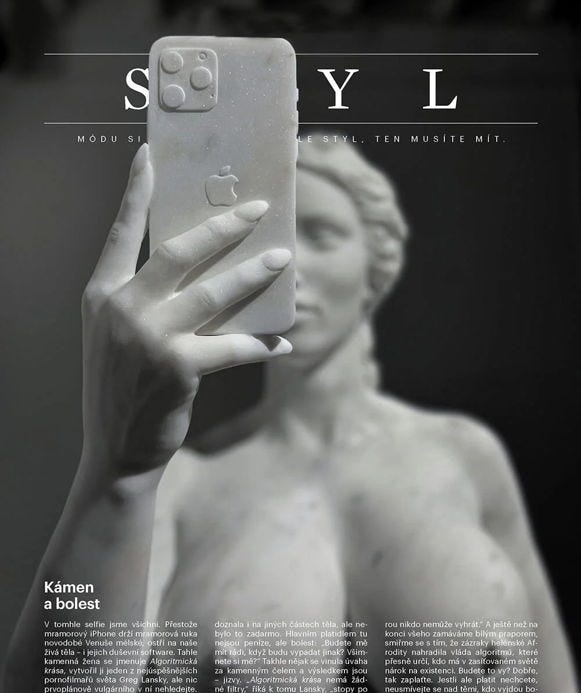
The most haunting part isn’t her scars—it’s that she’s looking at us. Lansky didn’t sculpt a statue, he built a mirror we can’t scroll past.
I think you all need to stop looking at TikTok.